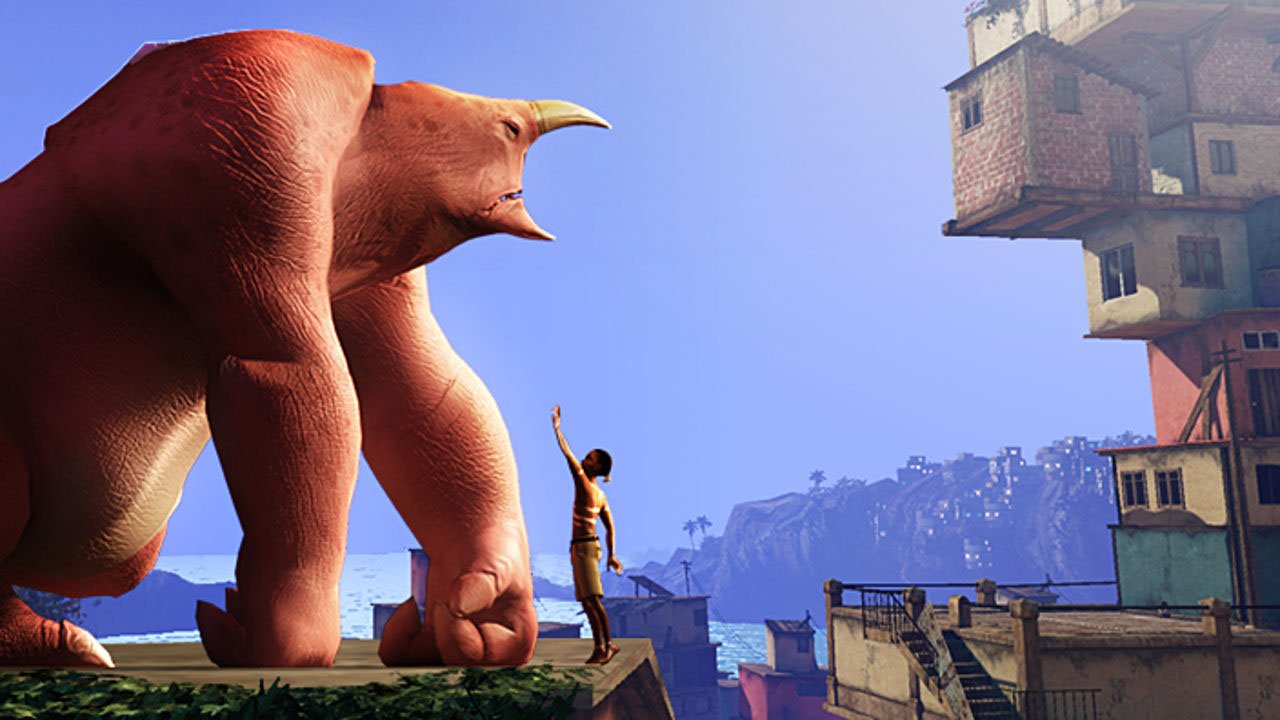The downloadable space has become one of the most interesting and dynamic places for gamers to go. It’s no wonder then that when it came time to make his own game, former Electronic Arts developer Vander Caballero struck out for the frontier that is downloadable games. What is surprising is the direction Caballero struck out in; he made a game, Papo & Yo, that was a metaphor about his own life as the child of an alcoholic. We caught up with him at the Montreal International Games Summit to find out more about his experiences with independent game development and surprising emotional honesty.
CG Magazine: What are the games that inspired you and put you on the path of game development?
Vander Caballero: I have to be spontaneous now [laughs]. When I was a kid I was playing Mario, Zelda for sure. And when I was older, Echelon. That was a great game about exploration, it used wire frames [graphics]. And the games that actually shaped me for what I do today were Ico and Shadow of the Colossus.
CGM: What do you find inspiring or exciting about the industry today?
VC: I’m excited about the indie and iOS scene. I think there’s a lot of really interesting, exciting things happening that you didn’t expect. For example, Unfinished Swan, The Room are examples of innovation you didn’t expect. I think AAA games are predictable. iOS, you never know what you’re going to get, and it can be really amazing.
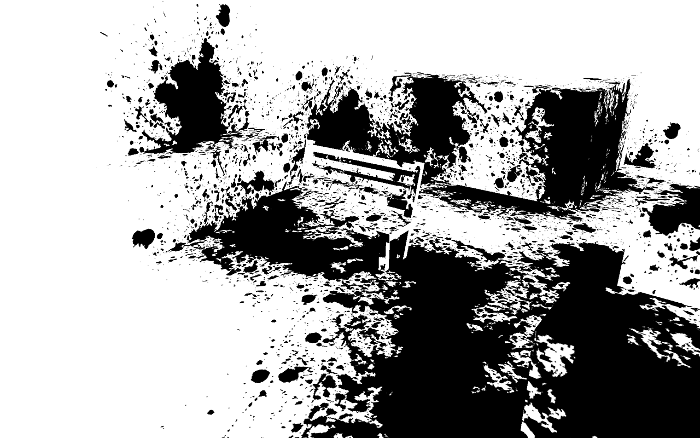
Unfinished Swan
CGM: You originally held a position as a design director and yet walked away from that job security during these uncertain times to found your own studio. Why?
VC: Because the AAA industry right now is like being on the Titanic. Everyone is having fun, there’s parties, there’s alcohol, there’s food… but there’s a big iceberg coming. And if you can already see it from far away, you want to jump off, right now, before it’s too late. Public corporations have a really hard time innovating, and it’s obvious why. They’re there to make profit, and that profit pays for the retirement of your grandmother. So they can’t take that kind of risk, and if you want to take that kind of risk, you can’t work in a public company. Their job is to innovate through acquisition. So if they see innovation, they buy it. They buy proven innovation. And I thought there was no better time to become an indie. Just jump out, right now, before the boat collapses and ride a new wave. Explore it.
CGM: What was it like walking away from all that? How hard was it?
VC: It’s not as difficult as it sounds. I think what’s more difficult is realizing why you want to leave and what opportunities you are going after. Once you do that negotiation in your head and understand the consequences, there’s no going back. When I was at EA and I saw the games and products that we were creating, they were so predictable. And as a consumer that wasn’t happy with what we were creating, it was a… “one plus one makes two” thing. I saw that it wasn’t sustainable. And then I said, “I have to leave. I believe there’s a better future.”
Once I made the decision, I said, “I’m a gamer. I want a certain kind of product the industry isn’t giving me and I believe it needs to exist. I want to do those games, emotional games.”I know if I like that kind of game, maybe others will like it. And that’s what kept me going, because I knew that we needed that. And Papo & Yo came out and people actually liked it. I’m really happy about it.
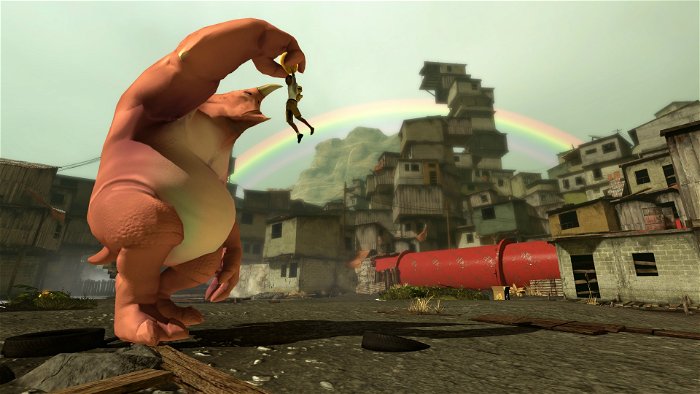
CGM: So how has Papo & Yo been received? Are you happy with its performance?
VC: I haven’t, in my entire career as a game developer, received so many e-mails from so many people thanking the team for doing the game. It’s incredible, the amount of e-mail people send, the postcards, people who want tattoos, kids that want birthday cakes of Lula, the robot in the game. And for me, it’s just really touching. Every time I go to a conference, someone who’s played Papo comes to me and talks about the story, tells me how the story helped them in their own life. And I’m like, “Whoa.” I never got that doing Army of Two or Need for Speed. [Laughs]
CGM: How did you come up with the original idea for Papo & Yo?
VC: Everything came from my desire to make something meaningful. When I say “meaningful” I mean something that gives closure. Let me give you an example; when people finish Assassin’s Creed, they hate the ending. They hate the ending of Mass Effect [3]. How come people hate the endings of these games? I think one of the reasons is they don’t get any closure. They think, “I wasted my life playing this game,” because when you read a good book and you close it, at the end you get a moral. You get something that helps you in life. It’s the same when you see a good movie. But when you play a game, you get to the end and you think “I just lost all this time and got nothing.” I think because of that, people get frustrated.
So when I decided I wanted to do something meaningful, I thought, “Okay, what did I learn from surviving an alcoholic father? I’m going to put that in a simulation.” And that was the birth of Papo & Yo, because I remember when I was a kid playing Mario, and I defeated Bowser, I was really happy. I escaped from my alcoholic father, but when I dropped the controller I came back to reality. And the game didn’t teach me anything. I think our job is to do better than that. We’re now in the next generation and we should try and make this art form as meaningful as possible.
CGM: Very few games use the element of autobiography. Why did you choose to do it?
VC: You cannot bring someone where you have not been. I survived an alcoholic father, and I’m here now, a happy father with two kids. I survived it, and I know I can bring people there, to a process of healing, and become a better person.
What happens in so many games today is that they’re so lame with people trying to put in a bit of story, but marketing has to have a word, and producers have to have a word… the writer is hostage to the influence of all these people. And it doesn’t feel right. It doesn’t feel honest. It doesn’t feel true. Games do really bad stories. If a movie were given the same kind of story as some games, the writer would get shot.
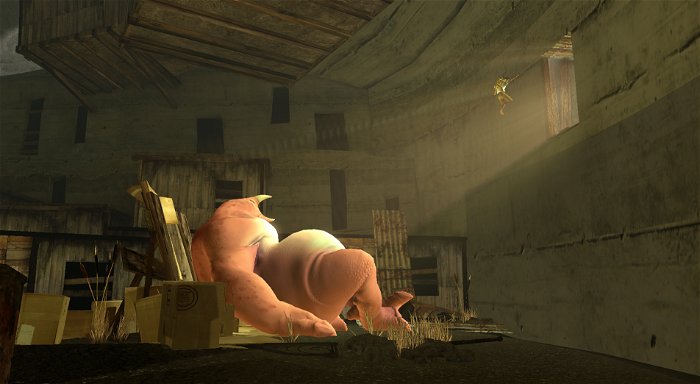
CGM: Was there ever any concern that you were being too public with an experience that most people would say is a private matter?
VC: Yes… but it was necessary. Many people misunderstood me talking about my alcoholic father and just thought it was pretentious. And when I hear that, I just laugh, because they don’t understand what it’s doing to a child. The only way you can defeat alcoholism and the hurt it causes to families is to talk about it. Because kids don’t go to school and tell their best friend, “Hey, my father came home drunk last night.” They don’t say it, they keep it inside. But having a game that speaks to them about it, it makes them feel not so alone. They can connect. I’m sad for people that think the other way. Because they’re not empathetic. They won’t make the jump and try to understand what it feels like to be the child of an alcoholic.
CGM: What do you think of the rising popularity of the indie scene?
VC: I think it’s because of digital distribution. Ten years ago, the only way to ship a game was if you had a lot of money to print the discs, and you sent those discs to GameStop. Now with digital distribution, it’s opened the doors for everyone. There’s never been a better time to be an indie than today. I’m really happy with what’s coming out there. You look at AAA games and it’s like “Okay, now I have to wait for this game to come out.” And you wait, and you follow the previews, and boom! Something pops up on iOS that you never expected. Right now I get more satisfaction from the innovation of iOS titles.
CGM: What about the impact this has had on the middle tier? Indie games seem to be cannibalizing a section of the industry that used to be occupied by good but not great games.
VC: If you could have a Ferrari for $60, why would you pay $50 for a look-a-like? But if you have an electric car for $50 people will say “Oh, that’s different, I’ll try it.” The problem is the middle tier was copying the AAA games instead of defining their own space and their own brand. If you look at the Independent scene in movies, their goal is to confront topics that are really mature, really heavy for society, but they’re needed. It’s completely different from mainstream cinema.
But what happens is that some of those independent films become mainstream. That’s not something that happened with middle tier of games because they were doing the same [thing] as the big games, but with a lesser budget.
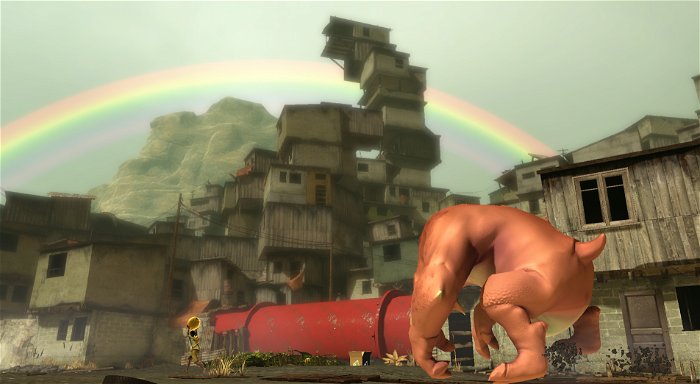
CGM: What about the AAA producers, then? Can they just keep making bigger teams, with bigger budgets indefinitely or is there a ceiling?
VC: Thirty per cent of console players do not finish their games. So you have all these people, spending 60 bucks and only playing 30 percent of the game. The moment someone figures out how to give that experience for 15 bucks, everyone will be in trouble. It’s not sustainable, it’s a bubble.
CGM: What kind of changes would you like to see then? Whether it’s a design philosophy or industry practice?
VC: I would love to see more designers and creators learn about the business end of it. There’s this type of thinking in the industry that “You’re a designer, or you’re a producer,” that’s it, pick one. And you can’t do both, and if you try, you’re going to fail one or the other. I think we should forget about those tags they put on us, because if you’re an indie guy today, you’re a developer and you’re a publisher. You can have great developer experience, but if you don’t know how to monetize it, you can’t make your next game. And many creators out there are hostages because they’re like, “I don’t know about this, I don’t know about that, I don’t care about money, I don’t like money.”And money can be used for the right things, like for example [Francis Ford] Coppola. To push the industry, you have to master your budget, like what he did for Apocalypse Now. That was a massive film, with unnerving credit, and he put his own money in to make it happen. I think Papo & Yo is the same. I would like to see some process to help creators be less afraid of business and money.
CGM: Do you consider Papo & Yo to be art?
VC: Yes. I don’t see it different from a book or a painting. There are many goals for art, but my goal for art, for example, that picture over there… you find yourself unconsciously drawn to it, and then you project yourself into that picture, try to analyze the symbols and see how they connect to you. Through this experience, you forget about yourself for a second and just enjoy this world, and even if it’s difficult, you come out on the other side and get something out of it.
CGM: So what’s next after Papo & Yo?
VC: Another emotional game. I’ve got some other tragedies in my life that I want to explore with people [laughs].
This interview originally ran in the CGM January 2012 issue.
